A healthy sexual life and reproductive health are vital not only for individuals but are also one of the basis for the formation of healthy society. International experience shows that during emergencies the spread of sexually transmitted infections (STI) increases significantly.
During natural disasters, wars, and other life-threatening situations, a fundamental human instinct kicks in: to continue living. Over the centuries, humans have not found a better way to overcome death than by creating new life. However, in such challenging circumstances, the conditions necessary for a healthy sexual life and reproduction may be lacking, or individuals may ignore them in stressful situations.
To increase awareness and prevent problems, the UN Population Fund regularly conducts events in Armenia. Among these efforts is the publication of a brochure titled “Sexually Transmitted Infections and Protective Measures,” available online on the UNFPA website. The brochure is distributed in medical facilities and, through collaboration with UNICEF, included in aid packages provided to individuals forcibly displaced from Artsakh.
Narine Beglaryan, Sexual and Reproductive Health Programme Analyst at the United Nations Population Fund (UNFPA) Armenia Office, and Hovhannes Hovhannisyan, the author of the brochure, Director of the Ministry of Health’s National Center for Burns and Dermatology, spoke with Mediamax about the prevention of sexually transmitted infections, the current situation, and the taboo surrounding the topic and actively combating it.
Early diagnosis leads to effective treatment
Narine Beglaryan, Sexual and Reproductive Health Programme Analyst at the United Nations Population Fund (UNFPA) Armenia Office
Protection of sexual and reproductive health stands as a pivotal focus area for the UN Population Fund. International experience proves that during emergency situations the spread of sexually transmitted infections among the population increases. This is the reason why we developed an informative brochure, which presents various preventive measures against STI, the ways of their transmission.
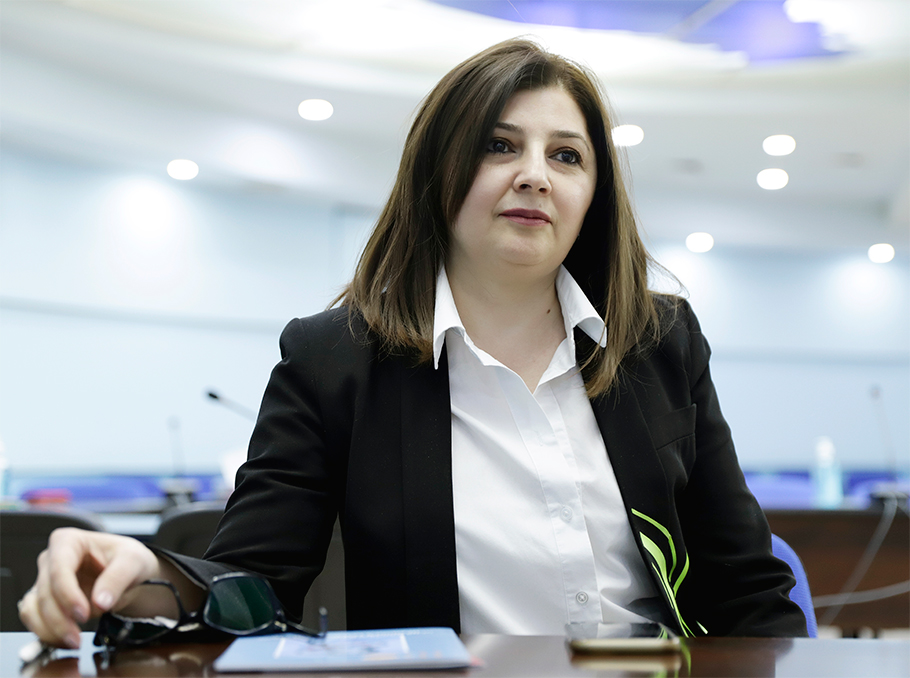 Narine Beglaryan
Narine Beglaryan Photo: Mediamax
It is important to inform individuals that if they have had any suspected sexual contact, simply getting tested shortly afterward may not be sufficient. This is because certain diseases have an incubation period. In the brochure, we have also presented a comprehensive schedule outlining the exact timing for these examinations.
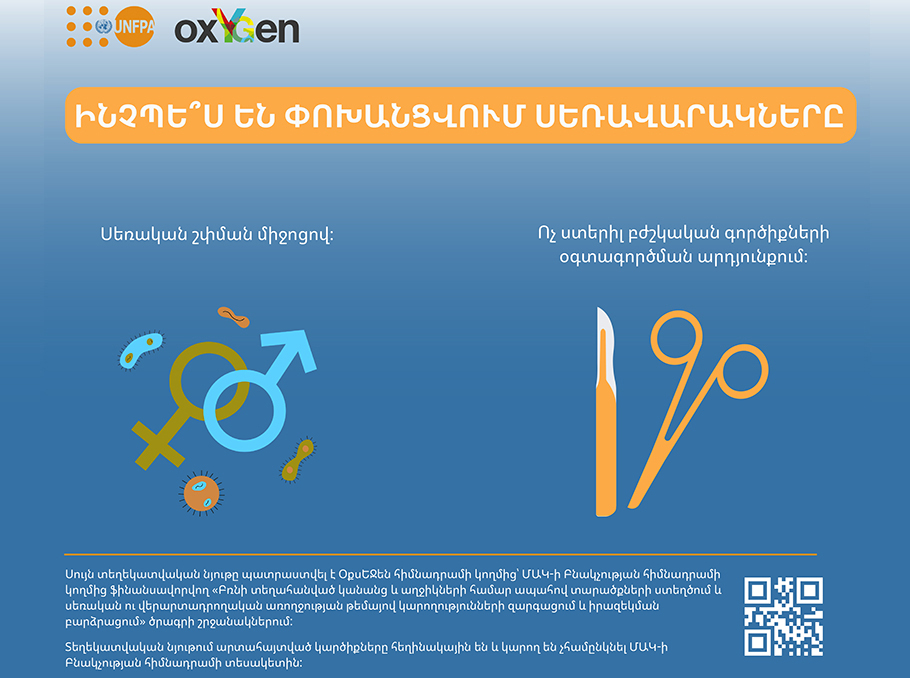
Photo: UNFPA Armenia Office
In Armenia, discussions about sexually transmitted infections still carry a taboo, leading many women and men to avoid seeking medical help. Naturally, the less people seek medical care, the less cases are detected, leading to complications if left untreated. It is crucial to encourage the population to seek medical advice at the earliest possible stage to get timely and effective treatment.
Not to ignore sexually transmitted infections and get timely treatment
Narine Beglaryan
Since issues related to sexually transmitted diseases and sexual life are highly personal, it is important for individuals to feel assured that their privacy will be fully protected when seeking medical assistance. To address this, the UN Population Fund collaborates with the medical staff. During all the courses we organize, we always emphasize the significance of medical ethics, because doctors’ correct approach enhances patient accessibility and, in turn, increases disease detection rates.
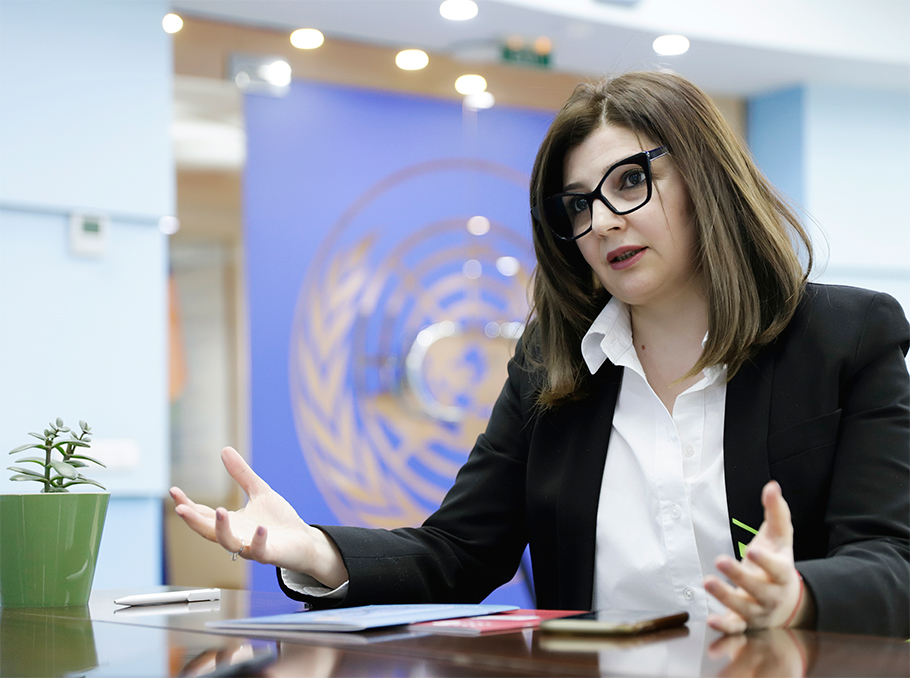 Narine Beglaryan
Narine Beglaryan Photo: Mediamax
Regrettably, many cases of sexually transmitted infections or even basic inflammatory conditions are often overlooked by patients, leading to secondary infertility. It is crucial that couples consult a doctor before considering pregnancy, seek treatment for any existing issues, and only then proceed with planning.
“The most important factor is doctor-patient meeting”
Hovhannes Hovhannisyan, Director of the Ministry of Health’s National Center for Burns and Dermatology
For a doctor, there is no greater joy than receiving a call from a patient treated for sexually transmitted infection, announcing the arrival of their child. It is an indescribable feeling.
 Hovhannes Hovhannisyan
Hovhannes HovhannisyanPhoto: Mediamax
I think the most important factor in the treatment of sexually transmitted infections today is the meeting between the doctor and the patient. While there are well-established treatment protocols, health monitoring, and maintenance options for all STIs, seeking guidance from a doctor is paramount.
Yes, the topic remains taboo, and not only in Armenia, but also in many countries of the world. An interesting example comes from Thailand, where the prevalence of sexually transmitted infections reached such alarming levels that it was deemed a threat to national security. To address the issue this country established completely anonymous clinics with no personal identification required. Individuals could register online, undergo necessary examinations devoid of any human factor, transfer their results anonymously to the doctor, receive the prescribed medications from a special device and be treated. Following this initiative, there was a noticeable increase in seeking medical care for STIs across the country.
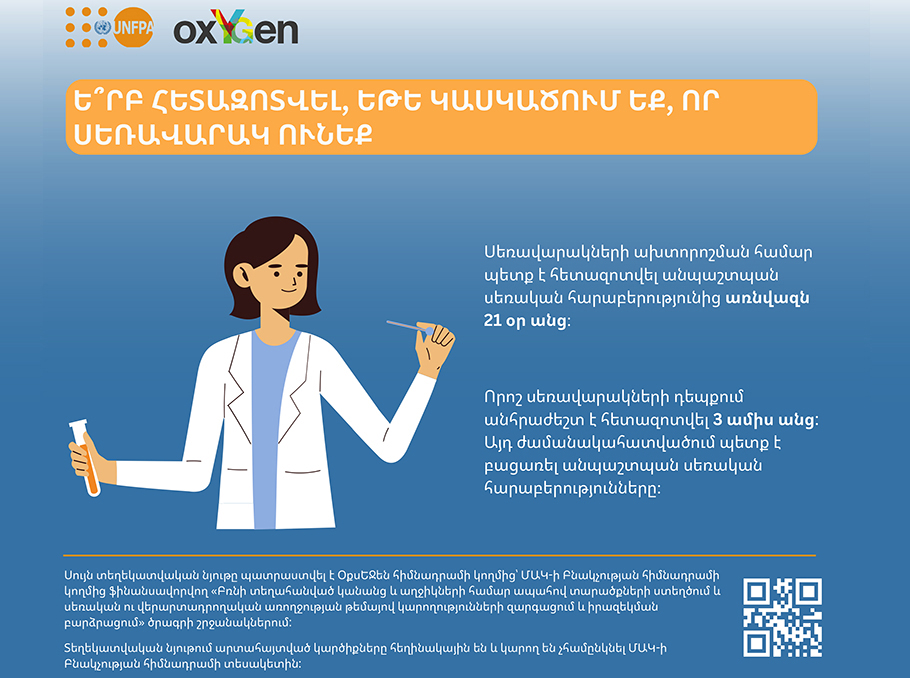
Photo: UNFPA Armenia Office
In Armenia, a conception has been formed since the Soviet times that the presence of sexually transmitted infections reflects a person’s moral behavior. It is not so. Years ago, one of my colleagues said “the number and nature of a person’s sexual relations do not give anyone the right to judge his/her moral character.” I definitely agree.
Sexually transmitted infections are no different from other health issues like tooth decay, allergies, or obesity. As with any other disease, individuals with an STI should not face any form of labeling.
STI is not a sentence
Hovhannes Hovhannisyan
Discussing statistics on the spread of sexually transmitted infections can be challenging due to the dynamic nature of the data, both in Armenia and globally. However, based on my personal observation, there has been an increase in the spread of STIs in Armenia. Several factors contribute to this, including immigration from countries where sexually transmitted infections are more prevalent than in Armenia, a rise in the number of individuals providing sex services, and a sharp decrease in the age of sexual intercourse. Regarding the decrease in the age, it is important to clarify that the problem is not having sex at an earlier age, but doing it without sufficient awareness. It is true that the condom use rates have increased in Armenia, but often they are used incorrectly or not always.
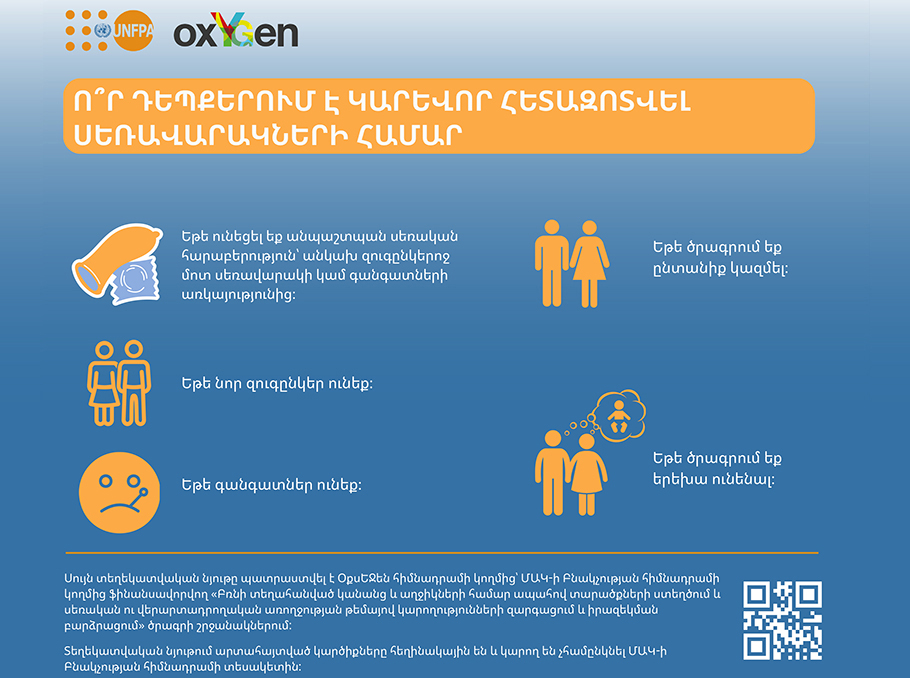
Photo: UNFPA Armenia Office
Now is the most correct and important time to talk about STI prevention. To illustrate, I will give you an example: in 2017-2018 approximately 115 cases of syphilis were recorded in the country, while by the end of 2023 this figure soared to 700, which is a rather sharp increase.
At the same time, I want to stress that being diagnosed with a sexually transmitted infection is by no means a sentence. There are well-established treatment mechanisms. Even with HIV, many couples live normal lives, and are having healthy children. The key prerequisite is seeking medical assistance.
In 2023, we examined 57 pregnant women suspected of having syphilis. Among them, 18 were confirmed to have the disease. They received the necessary treatment, and all of them gave birth to completely healthy children.
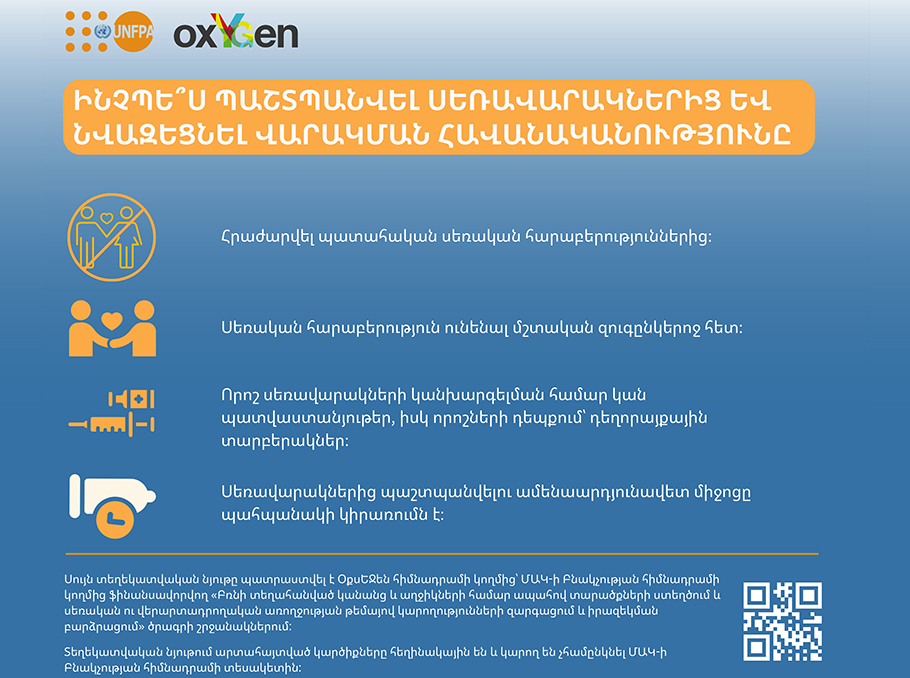
Photo: UNFPA Armenia Office
We also had 6 pregnant women who did not seek timely examinations, resulting in 6 cases of congenital syphilis. It is particularly painful for doctors to realize that this figure could have been zero if the patients had undergone examination on time.
Overcome death with life
Hovhannes Hovhannisyan
Numerous scientific studies highlight the surge in STI spread during emergency situations, with initial observations dating back to the Second World War. Clear statistics indicate a significant escalation of sexually transmitted infections in regions like Ukraine, Iraq, and Afghanistan during wartime. This increase is not solely attributable to military operations but also to the displacement of refugees caused by conflict.
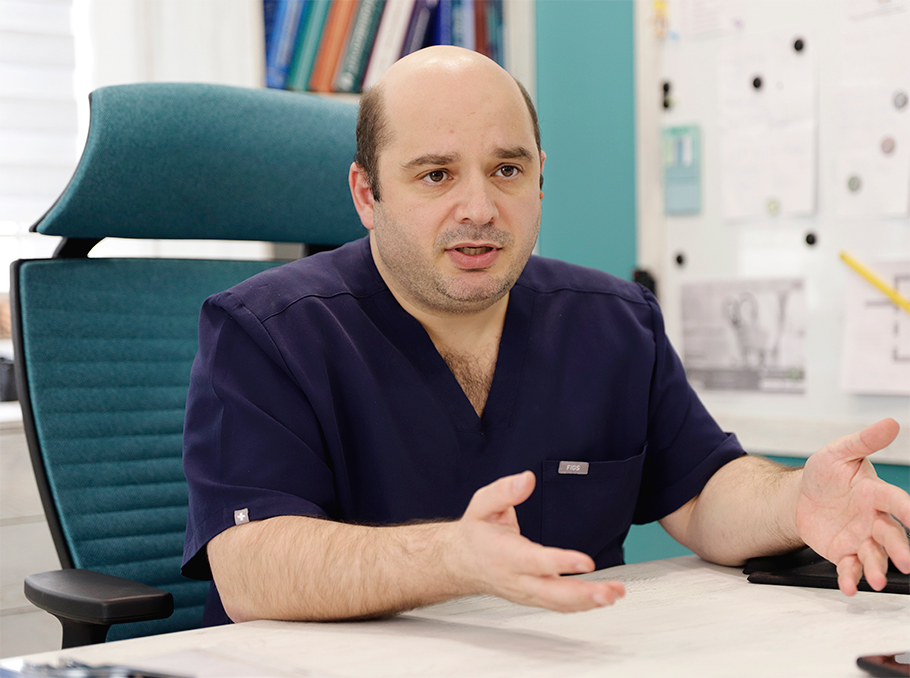 Hovhannes Hovhannisyan
Hovhannes HovhannisyanPhoto: Mediamax
This phenomenon is very natural and has a psychological, even instinctive roots: in the face of imminent danger and the risk of death, the need to procreate intensifies. When constantly witnessing human casualties, the instinct for self-preservation forces you to continue living.
The second factor is a bit more pragmatic. During emergency situations, the healthcare system becomes overwhelmed, prioritizing assistance for those directly affected. Consequently, essential services like STI testing and treatment are often deprioritized. However, this does not mean that the issue is less important.
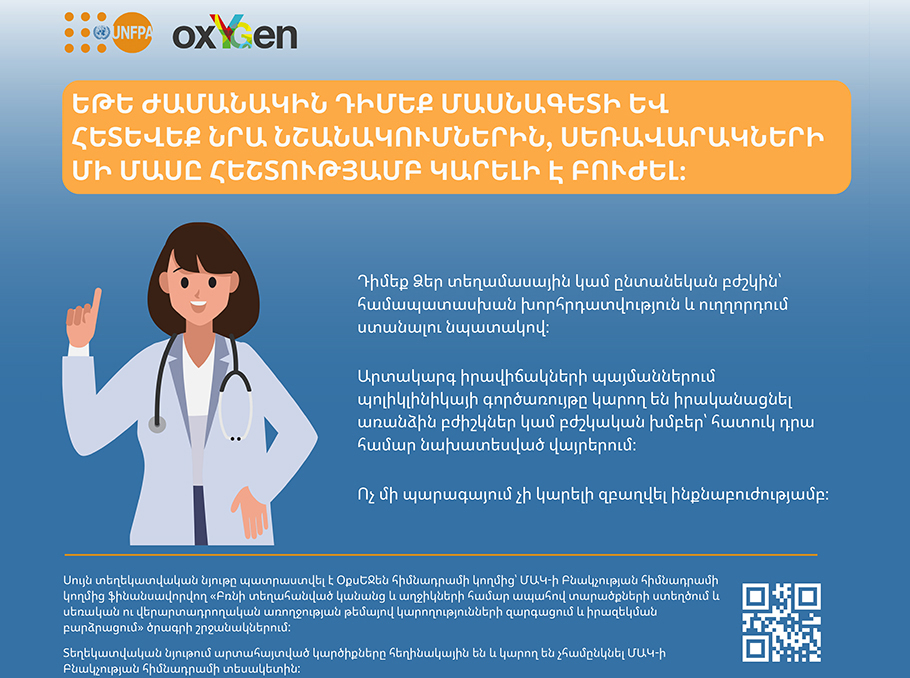
Photo: UNFPA Armenia Office
I hope that the brochure published in collaboration with the United Nations Population Fund will contribute to preventing the spread of sexually transmitted infections and result in an increase in the number of individuals applying for medical examination on time.
The brochure “Sexually Transmitted Infections and Protection Measures” was published within the framework of “Creation safe spaces for displaced women and girls and implementing capacity building, awareness raising on SRH” Programme funded by the United Nations Population Fund.
Yana Shakhramanyan
Photos by Agape Grigoryan
















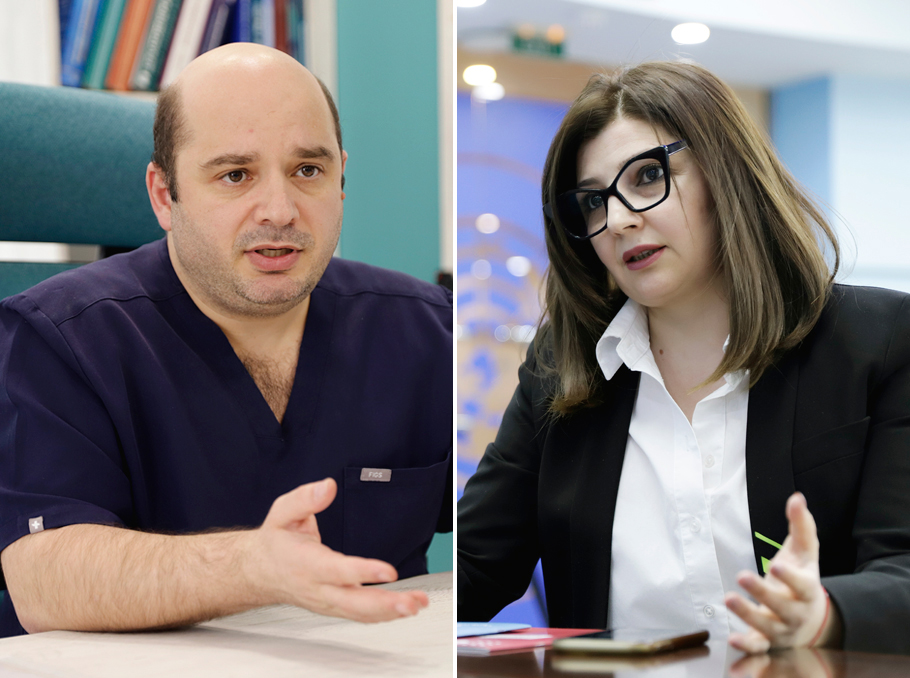









Comments
Dear visitors, You can place your opinion on the material using your Facebook account. Please, be polite and follow our simple rules: you are not allowed to make off - topic comments, place advertisements, use abusive and filthy language. The editorial staff reserves the right to moderate and delete comments in case of breach of the rules.